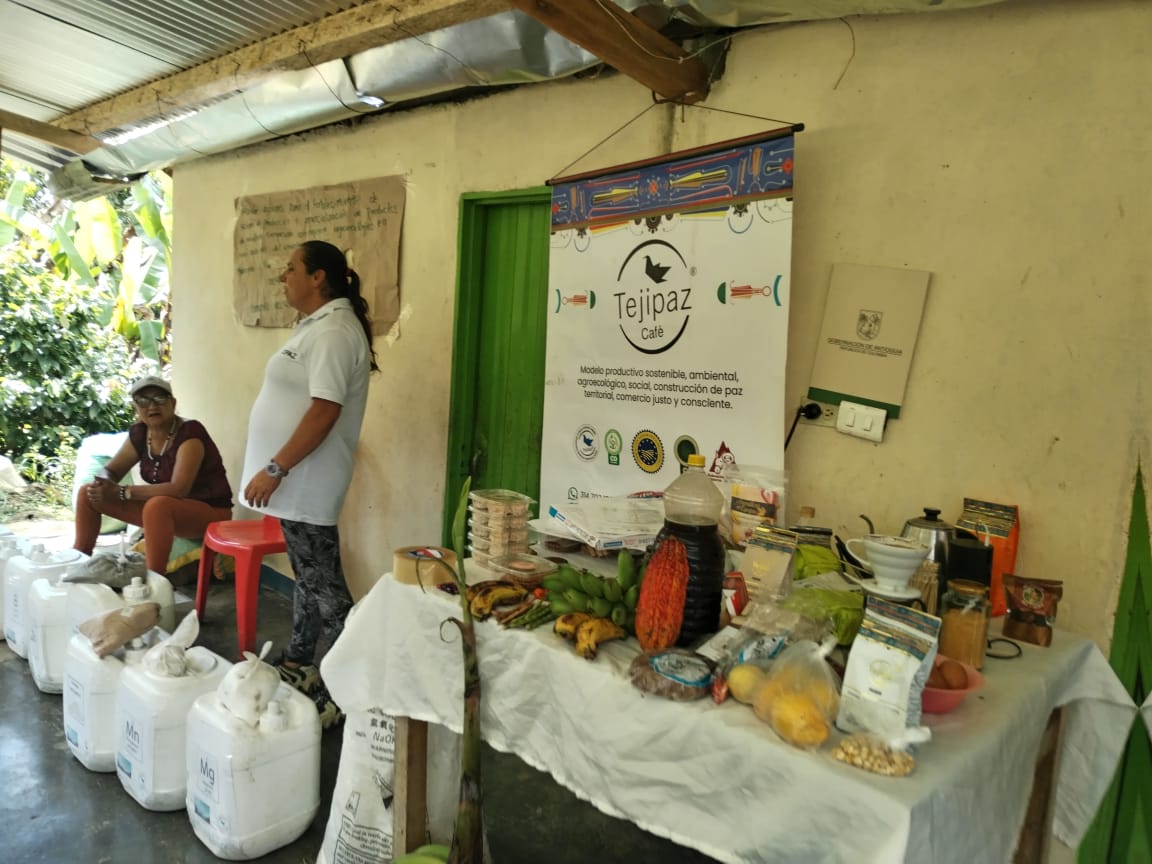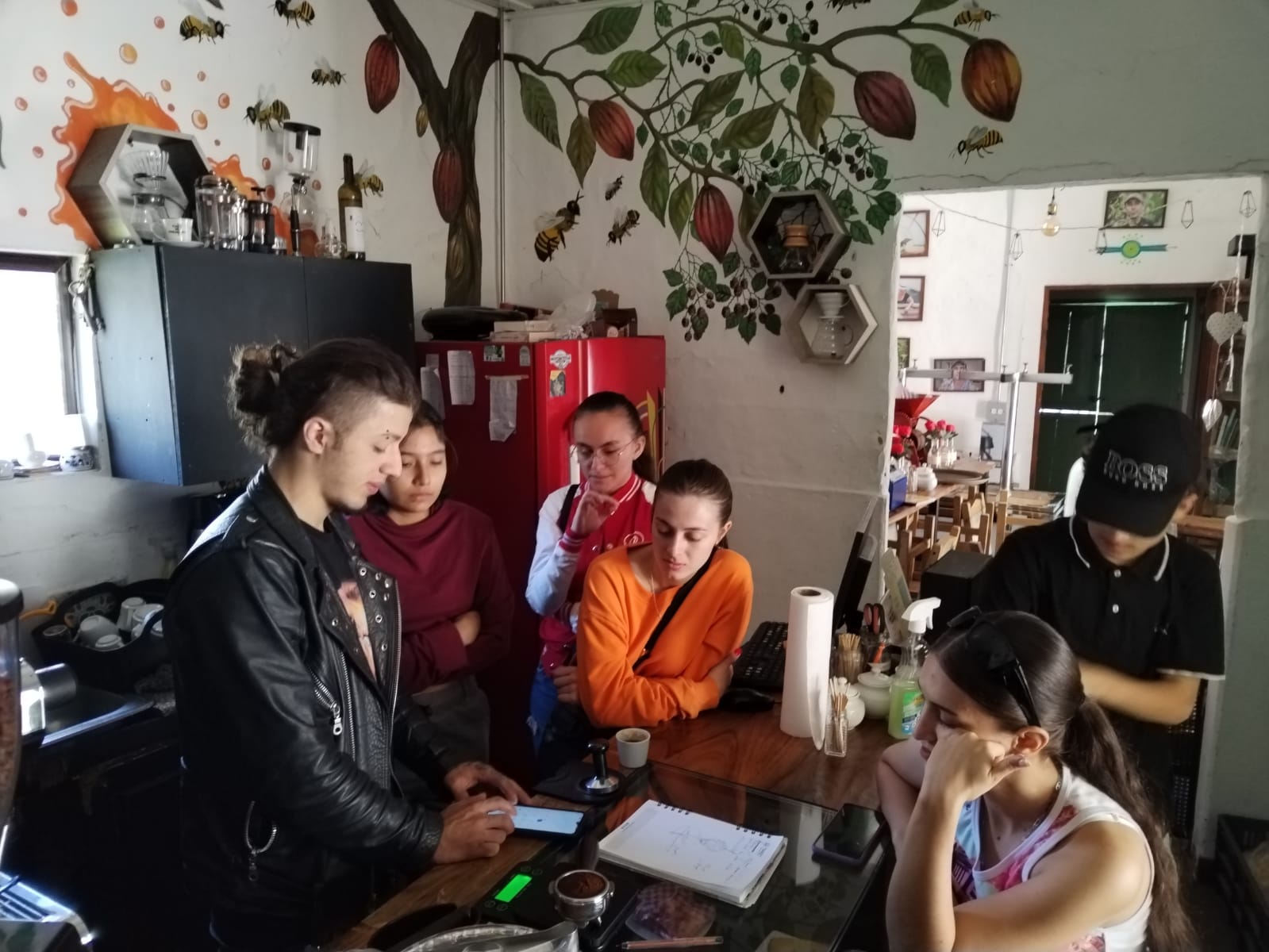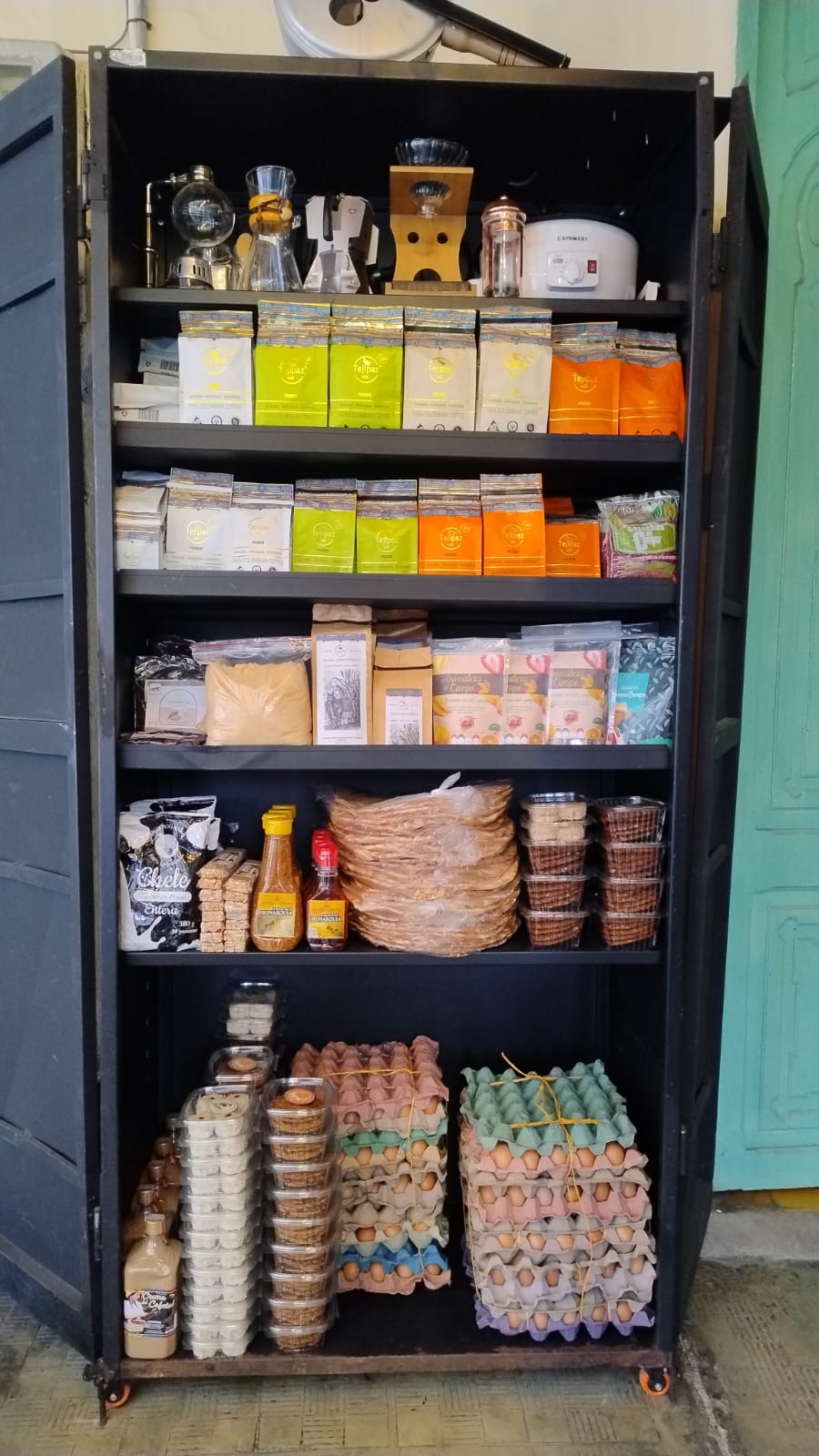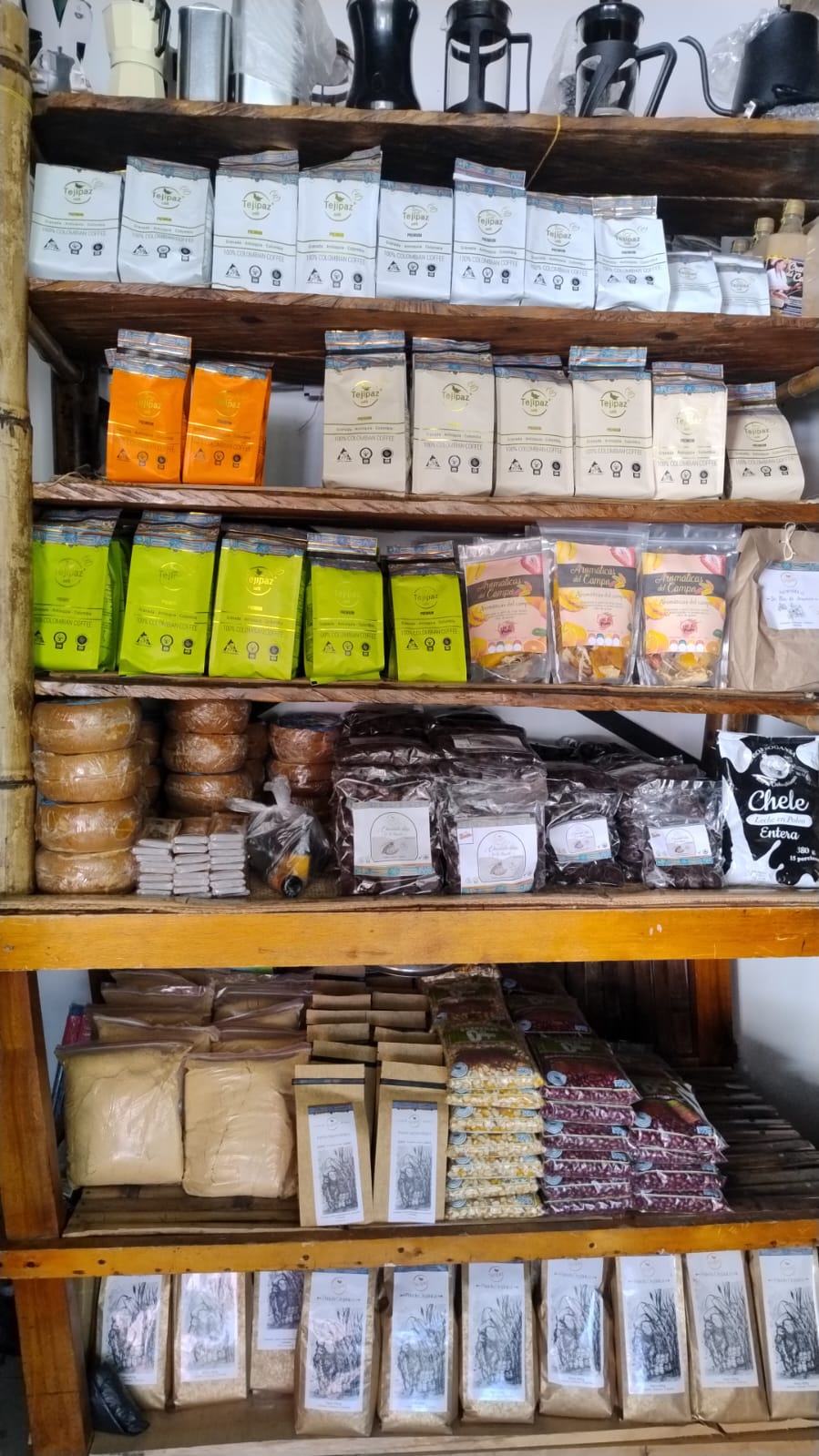Summary
- Profile Type
- Business Offer
- POD Reference
- BOCO20250613021
- Term of Validity
- 13 June 2025 - 13 June 2026
- Company's Country
- Colombia
- Type of partnership
- Commercial agreement
- Investment agreement
- Supplier agreement
- Targeted Countries
- Portugal
- Netherlands
- France
- Spain
Contact the EEN partner nearest to you for more information.
Find my local partner
General information
- Short Summary
- A Colombian association supports rural development in Granada, Antioquia, by promoting agroecological family farming, value-added products, and fair trade. It aims to strengthen farmers’ productive capacities through regenerative agriculture and improve commercialization to achieve economic, social, and environmental sustainability.
- Full Description
-
A rural Colombian association based in the department of Antioquia is working to connect small-scale agricultural producers with sustainable development opportunities. Focused on the municipality of Granada and surrounding areas, the organization promotes regenerative agriculture and agroecological practices as tools to strengthen family farming, contribute to territorial peacebuilding, and foster inclusive rural development.
The association engages directly with local producers to enhance their productive capacities, promote the commercialization of value-added goods, and ensure social, environmental, and economic sustainability. Its model integrates community-based development with circular economy principles, aiming to empower rural families and preserve traditional knowledge through environmentally responsible methods.
By supporting smallholder farmers in the transition toward agroecological production, the organization enables access to better markets, strengthens food sovereignty, and reduces environmental degradation. Commercial activities include the production and marketing of agricultural products derived from sustainable processes, as well as the development of community brands that reflect the identity and cultural richness of the region.
The organization has received national and international recognition for its contributions to sustainability and rural peace, including certifications for green business practices and the protection of regional products. These recognitions validate its commitment to ethical trade, environmental conservation, and rural resilience.
The organization is actively seeking international cooperation to expand the reach of its model and establish long-term partnerships. It is particularly interested in collaboration with social enterprises, fair trade networks, environmental organizations, and research institutions that support agroecology and community-led development.
Forms of cooperation may include knowledge exchange, market access partnerships, technical assistance, or co-development of projects related to sustainable agriculture, climate adaptation, or rural entrepreneurship. The goal is to scale impact while maintaining the integrity and autonomy of local communities.
By combining traditional farming knowledge with contemporary sustainability practices, this Colombian initiative offers a compelling model for inclusive development and invites aligned international partners to co-create a more just and regenerative rural economy. - Advantages and Innovations
-
This second-level organization promotes a sustainable production model rooted in environmental stewardship, social equity, and peacebuilding in Granada, Antioquia, and other regions of Colombia. Its approach is centered on strengthening family farming, generating added value for agricultural products, and promoting fair, conscious trade in areas historically affected by armed conflict.
The organization operates through two complementary structures: a non-profit association that develops productive capacities through training, technical assistance, and social fabric restoration; and a marketing entity that positions rural products in national and international markets while ensuring fair pricing, quality standards, and long-term sustainability.
A key innovation is the implementation of a Participatory Guarantee System focused on sustainability, trust, and solidarity. This model empowers rural families by recognizing their contributions to healthy food systems and fostering direct, transparent relationships with consumers. The organization also facilitates knowledge exchange between communities, academia, and institutions, which supports ongoing innovation in agricultural production, processing, and commercialization.
Through strategic partnerships with public entities, universities, farmer associations, and market platforms, the organization builds inclusive value chains that ensure equitable conditions and strengthen local economies. It promotes agroecological practices and hosts community events—such as fairs and product competitions—that celebrate innovation and foster rural entrepreneurship.
By integrating productive, social, and organizational strategies, the model currently benefits around 150 people each year and has earned recognition from state institutions, civil society, and academia as a replicable, participatory, and impactful solution for rural transformation. - Stage of Development
- Already on the market
- Sustainable Development Goals
- Goal 2: Zero Hunger
- Goal 11: Sustainable Cities and Communities
- Goal 6: Clean Water and Sanitation
- Goal 15: Life on Land
- Goal 1: No Poverty
- Goal 9: Industry, Innovation and Infrastructure
- Goal 12: Responsible Consumption and Production
- Goal 13: Climate Action
- Goal 8: Decent Work and Economic Growth
- Goal 4: Quality Education
- Goal 17: Partnerships to achieve the Goal
- Goal 16: Peace and Justice Strong Institutions
- Goal 10: Reduced Inequality
- Goal 3: Good Health and Well-being
- Goal 5: Gender Equality
- IPR status
- No IPR applied
Partner Sought
- Expected Role of a Partner
-
The organization is seeking to collaborate with a diverse set of partners to strengthen rural and agricultural development through innovation, sustainability, and inclusive market access. The following types of organizations are of particular interest, each contributing distinct expertise and value:
Organizations supporting rural and agricultural development: These partners are expected to provide technical advice, facilitate training, and promote the adoption of good agricultural and manufacturing practices. They will also support the introduction of innovative, sustainable technologies adapted to local contexts.
Research institutions and universities: These partners will contribute by developing and adapting new technologies, fostering innovation in production systems, and facilitating knowledge exchange between agricultural communities, researchers, and relevant stakeholders.
Fair trade organizations focused on agroecological products: These entities can play a key role in building commercial alliances, supporting market positioning, and implementing ethical marketing strategies to reach European and other international markets.
Logistics and distribution companies: Partners in this category will help optimize supply chain processes, ensure efficiency in storage and transportation, and support sustainable export strategies for agricultural products.
Organizations supporting SMEs and business development: These institutions are expected to strengthen organizational capacities through training in business management, marketing, and strategic planning. They may also facilitate commercial matchmaking and strategic alliances.
Networks and platforms for knowledge and product exchange: These partners can foster collaboration between rural communities, promote the exchange of experiences and best practices, and support the scaling of social and productive innovations.
Cooperation agencies and European funding entities: These partners can provide financial support for innovation, sustainability, and organizational development initiatives. They may also offer technical assistance related to project management, regulatory compliance, and international cooperation requirements.
Each of these partnerships aims to foster inclusive development, strengthen value chains, and contribute to environmental and economic sustainability in rural territories. - Type and Size of Partner
- SME 11-49
- R&D Institution
- SME <=10
- University
- Type of partnership
- Commercial agreement
- Investment agreement
- Supplier agreement
Dissemination
- Technology keywords
- 08002004 - Traceability of food
- 11001 - Socio-economic models, economic aspects
- 08001004 - Food Processing
- 08001001 - Drink Technology
- 07001004 - Crop Production
- Market keywords
- 07005006 - Other consumer services (including photo processing)
- 07002005 - Other retailing
- 07003002 - Health food
- 09005 - Agriculture, Forestry, Fishing, Animal Husbandry & Related Products
- Sector Groups Involved
- Tourism
- Creative Industries
- Proximity & Social Economy
- Targeted countries
- Portugal
- Netherlands
- France
- Spain
Images
Files
PRESENTACIÓN TEJIPAZ CAFE V290012025 - TEJIPAZ BIC.pdf



